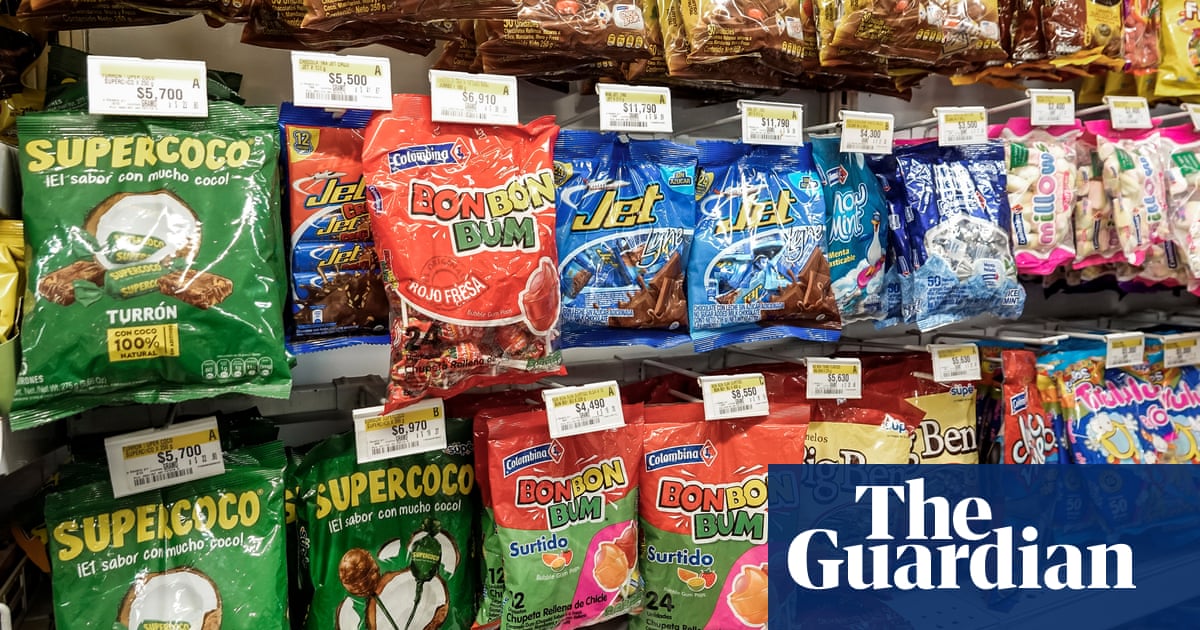
Colombia’s new legislation, which imposes a tax on ultra-processed food, has received praise from activists and health professionals as a potential model for other nations.
The “junk food law” was finally implemented this month after years of advocacy, and a gradual levy will be put in place. Beginning at 10%, an extra tax will be imposed on affected foods, with the rate increasing to 15% next year and eventually reaching 20% by 2025.
According to Franco Sassi, a professor of international health policy and economics at London’s Imperial College Business School, many countries have implemented health taxes, such as those on tobacco and sugary drinks, but few have applied them to processed foods. Sassi believes that Colombia’s approach is more comprehensive than previous ones and could serve as a model for other nations.
The tax is aimed at ultra-processed items, which are classified as pre-packaged foods that are manufactured in factories and require no preparation. This includes foods that are high in salt and saturated fat, such as chocolates and chips. Sassi stated that there were some negotiations with the food industry, resulting in certain processed foods, like sausages, being exempt from the tax.
The diet commonly followed in Colombia contains excessive amounts of sodium, which has been associated with a rise in the incidence of cardiovascular illnesses. These include strokes and heart failures, which are responsible for approximately 25% of deaths each year. On average, a person in Colombia consumes 12g of salt per day – one of the highest rates in Latin America and globally. Nearly 30% of adults in Colombia suffer from high blood pressure.
Other non-communicable diseases linked to diet and obesity, such as diabetes, are also problematic, with more than a third of deaths attributed to diabetes occurring among the under-70s.
Approximately 76% of deaths in Colombia are attributed to non-communicable diseases.
Beatriz Champagne, the executive director of the Coalition for Americas’ Health, a Latin American advocacy group, stated that they aim to prevent replicating the patterns of affluent industrialized countries such as the United States, where diseases related to diet are prevalent. She also mentioned that Latin America is leading the way in terms of implementing effective policies.
Sassi stated that Colombia’s tax policy is in line with front-of-packaging labels, which is noteworthy. The country is following the lead of its neighboring countries Ecuador and Peru by implementing mandatory health warnings on foods that contain high levels of unhealthy ingredients, such as sugar and saturated fat.
According to Sassi, the tax is imposed on products that also carry a health warning label. This serves as both a means of providing information and a financial motivator for consumers to steer clear of these items.
Activists report facing strong resistance from the food and drink corporations in the time leading up to the implementation of the legislation.
Esperanza Cerón Villaquirán from Educar Consumidores, an organisation which has been campaigning for health tax and product labelling since 2015, said: “Our team suffered all kinds of attacks and censorship prohibited in our country.
The dedication we put in was not just on an institutional level, but also on a personal level. We always remained vigilant and persevered.
Cerón Villaquirán likened the process of enacting the law to a challenging childbirth after years of dedicated effort.
Detractors of the recently implemented tax argued that it will exacerbate Colombia’s ongoing battle against inflation.
According to Sassi, the current financial struggle and the significant impact of food costs on inflation make it challenging to discuss implementing new taxes in most nations. However, there is potential to utilize the current tax system to promote healthier food choices, such as by lowering VAT on nutritious foods and increasing taxes on unhealthy options.
Champagne stated that the main goal of industrialized food production is not to provide nutrition, but to generate profit. This results in producers disregarding the potential harm it may cause to consumers, whether it be illness or death.
Source: theguardian.com
















